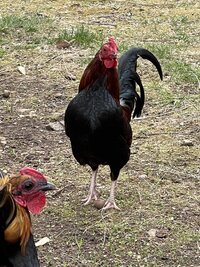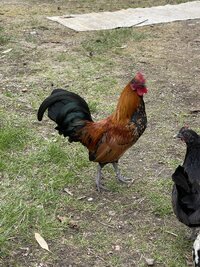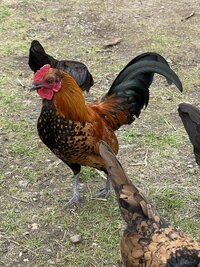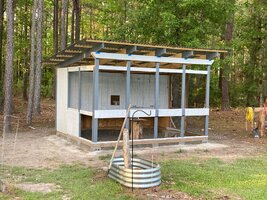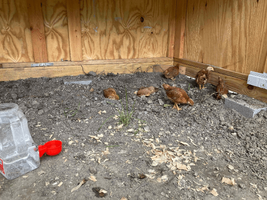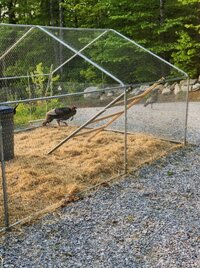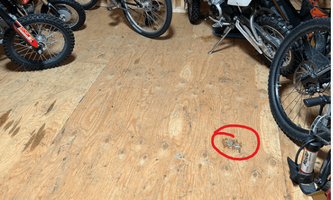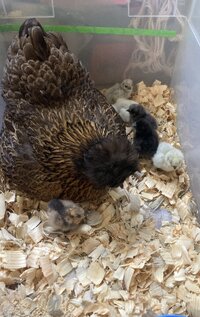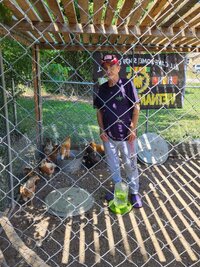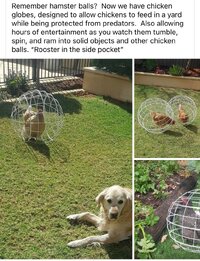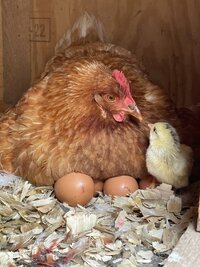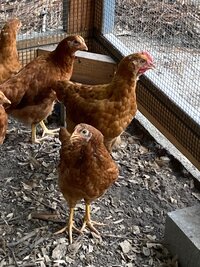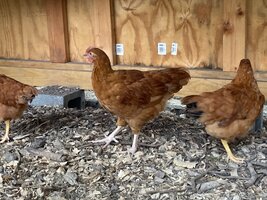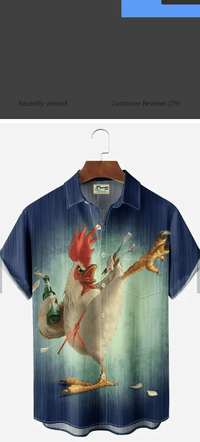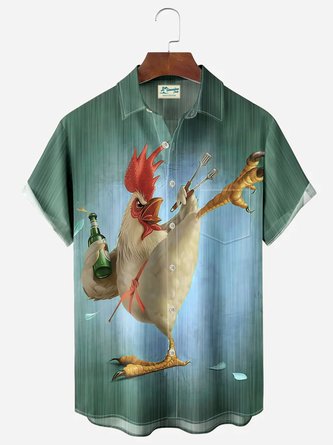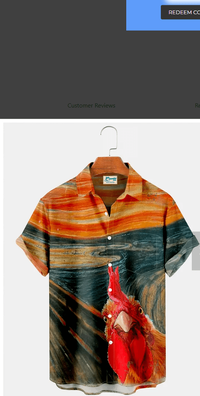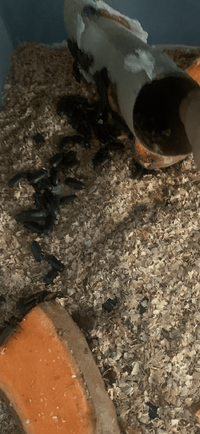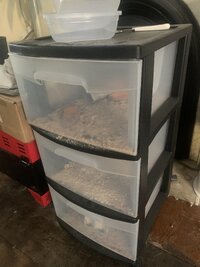Weve had chickens now for over 10 years. We've hatched-out and raised a number of generations.
During that time, we've had a large variety of chicken breeds (some pics are posted below). The australorps are some of the smartest. My wife (
CowgirlUp here on NES, knows each and everyone real well).
For those considering chickens, here's some input:
- You need to build your coop and enclosed run with hardware cloth mesh and NOT chicken wire.
- You need to create a solid barrier along the coop and run so that NOTHING can dig underneath. Our hardware cloth continues down about a foot below the grade and it's got large rocks over & under it, so nothing can dig through as would be the case if there were dirt there. We have 1 layer of hardware cloth + an additional layer of stronger type hardware cloth along the entire lower perimeter (so 2 layers).
- You should have a roof over your run to keep them dry and also keep the snow out.
- You should have a way to close over the run during brutally cold weather. We have winter panels (heavy plastic poly in wood frames, and some have plexiglass so they can see out. Some have hinges so we can flip them up when the winter Temps are not that bad). That also allows some necessary ventilation.
- You should have a means to keep their water dish from freezing during winter months. We've found that using a plastic chicken watering container over a safe coop heating element works best. They don't like the galvanized water containers because of some taste issue from the metal surface.
- You should have 2 areas of the coop and the run that can be separated for integrating new hens. That way they can see each other but stay separated. We have a slide up door panel that can open and connect the 2 areas once full integration is established.
- You should have the ability to place sick or injured hens isolated & away from the flock. We have several old rabbit hutches in our basement as an infirmary area with plenty of meds and a counter to examine them.
Hens will hide their injuries and sickness from the flock, so you have to watch for the slightest changes of behavior and very minor indications of any kind (that something is "off" with them). Letting even 1 day go by and not taking action can mean the difference between successfully heading-off a condition, or, the hen's health going down-hill and her suffering and dying.
The wife has a couple of plastic, self-made, chicken first-aid boxes with anything from gloves, bandages, wound cleaner, gauze, to common types chicken meds that you should keep on-hand.
If you leave a sick or injured hen with the flock, they will likely eventually attack and kill her.
(If they see a blood spot on another chicken, a common chicken-reaction is to pick at it constantly, until that hen dies).
- You should monitor them constantly if you allow them to free range. We've had attacks regularly from hawks. Also coyote, bobcats, and rabid racoons.
- Be ready to "react immediately" to stop threats from varmint attacks quickly. You may only have seconds from hearing a commotion and grabbing a firearm and making it to the yard. Seconds are the difference from losing a hen and successfully stopping an attack.
We live in the sticks. So we have perimeter motion sensor alarms, cameras and other ways to try to reduce our reaction times when the hens are out free ranging.
A rooster is also very helpful for sounding the alarm early.
- Avoid having more than one rooster with most flocks that are a from few hens -to- 20 hens. They will constantly fight each other and eventually one will kill the other. During that time, the entire flock was always completely stressed-out.
(We once had 3 roosters that we had as chicks. They got along because they grew-up with each other, they knew the biggest was in charge, and they also knew their place because of that. We've also had 3 roosters that we raised that started non-stop fighting at a certain adolescent point, and we had to separate and re-home 2 of them = so you never know .... ).
- Learn everything you can about raising chickens, including common sicknesses and diseases, and behavior aspects.
Examples: They like to take
dirt baths. Its good to look it up and understand what that is, and the benefits to them. Also common rooster behavior between the hens (example: look up the rooster "
domination dance").
- Chickens are "
self aware". They know what death is and they know when one of them is visibly dead (such as when they can see a death happen/occur, or, the see the aftermath of a dead hen).
- They have exceptional eye sight and hearing. But don't assume that will be able to always protect them from various predators.
- Chickens are not humans. So don't try to interpret or assign certain chicken behavior as you would a person (and get frustrated or angry). You need to be patient and realize that they react to many things and to each other = simply due to their natural, ingrained, instinctive, ways.
One Example: They have a "
pecking-order" and they establish & maintain it in some ways that can seem a bit harsh.
- Check out the website and forum "
Backyard Chickens" for an exceptional amount of very good information.
(There's a lot more that can be said, but those are some initial key points for "
your consideration").
Also check out the 2 helpful videos below:
View: https://www.youtube.com/watch?v=1rDArRNSDBE
View: https://www.youtube.com/watch?v=1c06xOF4uQ8
FWIW, here is a pic of our coop (with the "separation section" addition constructed): It has elec. power, lighting, wireless cameras, insulation, etc.
View attachment 719621
Example of "Winter/Cold-Weather" Coop/Run Panels (older pics before the left side addition was put on):
View attachment 719631
View attachment 719622View attachment 719624View attachment 719625View attachment 719626
